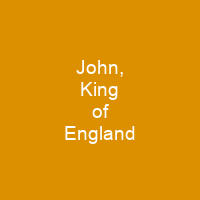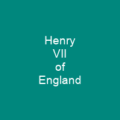John was King of England from 1199 until his death in 1216. He lost the Duchy of Normandy and most of his other French lands to King Philip II of France, resulting in the collapse of the Angevin Empire. His judicial reforms had a lasting effect on the English common law system. The baronial revolt at the end of John’s reign led to the sealing of Magna Carta, a document sometimes considered an early step in the evolution of the United Kingdom.
About John, King of England in brief

Although all parts of Henry’s empire owed allegiance to Henry, the disparate parts each had their own traditions and governance structures. Although the custom of primogeniture was slowly becoming more widespread, the concept of an empire was less popular amongst the Norman kings of England. It was unclear what would happen to the traditional ties between England and Normandy over time, and it was unclear whether John would inherit all his father’s lands on his death. John died of dysentery contracted whilst on campaign in eastern England during late 1216; supporters of his son Henry III went on to achieve victory over Louis and the rebel barons the following year. He is usually considered a hard-working administrator, an able man, and an able general. However, modern historians agree that he also had many faults as king,. such as what historian Ralph Turner describes as pettiness, spitefulness, and cruelty. John’s attempt to defeat Philip in 1214 failed because of the French victory over John’s allies at the battle of Bouvines. His argument with Pope Innocent III led to John’s excommunication in 1209, a dispute he finally settled in 1213. He spent much of the next decade attempting to regain these lands, raising huge revenues, reforming his armed forces and rebuilding continental alliances. The territories of Henry and Eleanor formed the Angevins’ Empire, named after Henry’s paternal title of AnJou and, more specifically, its seat in Angers.
You want to know more about John, King of England?
This page is based on the article John, King of England published in Wikipedia (as of Nov. 04, 2020) and was automatically summarized using artificial intelligence.







